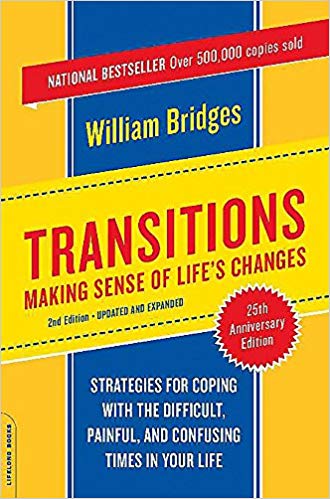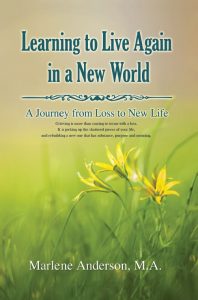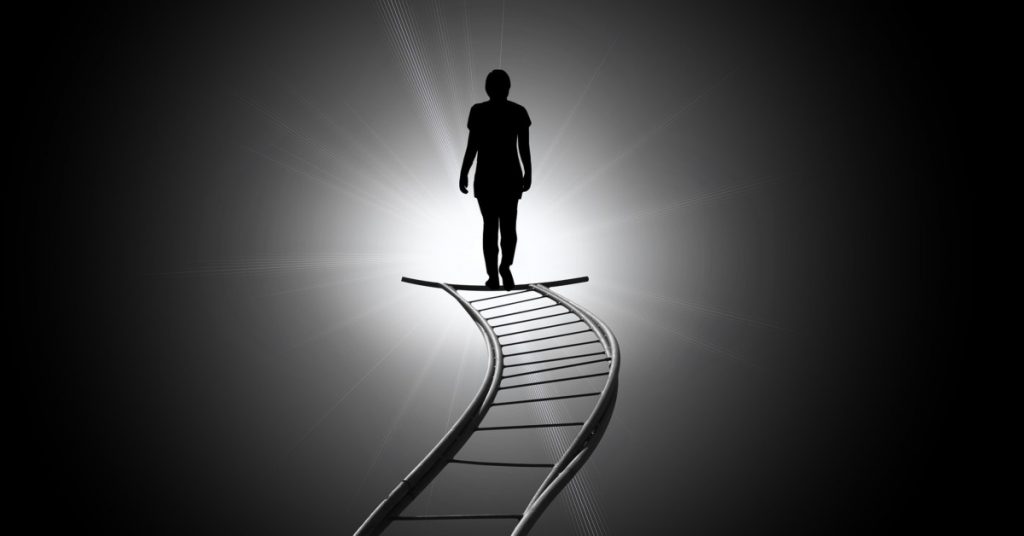Listen to this episode of the Focus With Marlene Podcast
Click here to listen to today’s podcast episode.
Click here to get caught up on all episodes in this series on recovering from loss.
There are rituals in many cultures that take us from one stage of life to another. Coming of age ceremonies or rites of passage symbolize leaving childhood to enter adulthood.
Sometimes the rituals are physically demanding – others are simply a public recognition and celebration after instruction. Religions also have symbolic ceremonies to represent a major transition such as Jewish Bar Mitzvahs and Confirmation in the Lutheran and Roman Catholic Churches.
We leave something of ourselves behind in our endings as we move into the next stage of life.
Even if we are enthusiastic about a new beginning, the ending can be bitter-sweet. We wait with anticipation for that first child, only to discover in becoming a parent, that we are not free to come and go as we please. Life has been altered forever.
We may finally have reached that long-awaited retirement, only to experience restlessness and lack of purpose. It is necessary to redefine who we are at each stage of life.
We rarely think about what we are leaving behind when making a new beginning. Even if the new role was planned, such as becoming parents, we seldom realize what was left behind.
To fully appreciate a new beginning, an ending needs to be completed.
Significant losses are endings that close one chapter of life to start a new one. They are not usually an ending of choice. But we can’t put our energy into constructing a new future until we let go of the past. It’s not forgetting what you loved and enjoyed but looking beyond it.
Losses strip away the familiar and the reality we now face can look dark and dismal, where doubts and fears unexpectedly rise like monsters. Transitions are a pivotal point. We can hang on to the past or move forward.
 Years ago, I attended a weekend college class led by guest lecturer, William Bridges, who wrote the book, Transitions: Making Sense of Life’s Changes.
Years ago, I attended a weekend college class led by guest lecturer, William Bridges, who wrote the book, Transitions: Making Sense of Life’s Changes.
Bridges defined three stages in making a transition: endings, a neutral zone, and finally a new beginning. He addressed the everyday transitions we make but seldom think about: getting married, becoming a parent, retirement, etc. Each requires leaving behind who you were in order to embrace a new identity.
The task of endings is to clarify, express the feelings we have, and let go.
In the “neutral zone” our focus shifts from the past to discovering who we are today. It is a time of reorientation. This can be a very unsettling place laced with anxiety and instability as we close the door on what was familiar and look at the unknown.
Bridges talked about the need to make a solitary journey into the wilderness to redefine what is important, what we are leaving behind, what we are bringing with us and still struggling with. In the wilderness there are no distractions from life, and we have the opportunity to wrestle and come to grips with our expectations and assumptions and make sense of where we are in the world.
While this time might seem unproductive, it really is gaining a better understanding of what we are bringing with us. It is a bridge between the old and the new – a time to be alone, but not necessarily lonely. It is a time of putting together a different perspective of who we can become.
As we transition from who we were to who we can become, we need to take a solitary journey into “the wilderness,” a time to spend alone, to reflect. As we redefine who we are today, what is important and why and what we want to take with us. As we do, we walk away a stronger person. A good friend of mine has taken many backpacking desert trips alone. At first it was to discover more about who she was. Now she just enjoys the solitude.
Transitions – that shift from one reality to another.
As humans we want to move immediately from an ending to a new beginning. We don’t want to feel the pain of loss or the uncertainty of the future. We are uncomfortable not knowing where we are going. We want to be doing things – anything.
So, we quickly bundle up our “baggage” in our backpacks and head out the door trying to recapture what we had before. If we do not spend some time in reflection, and skip directly to creating a new beginning, our beginnings may not be as successful as we’d like.
Life is full of transitions that require time to process. Someone said it takes about 18 months to 4 years to complete a major life transition. In today’s world of instant responses, we want our life processes to happen immediately.
 Learning to Live Again in a New World
Learning to Live Again in a New World
We need validation for the turmoil of thoughts and emotions we experience. But we also need the tools necessary to create a new beginning that is both satisfying and meaningful. My new book, Learning to Live Again in a New World, offers those tools to help work through the problems you might be facing.
It is a guide to help you through the ups and downs of grieving a significant loss. And it includes a study guide at the end for use with groups.
Marlene Anderson


